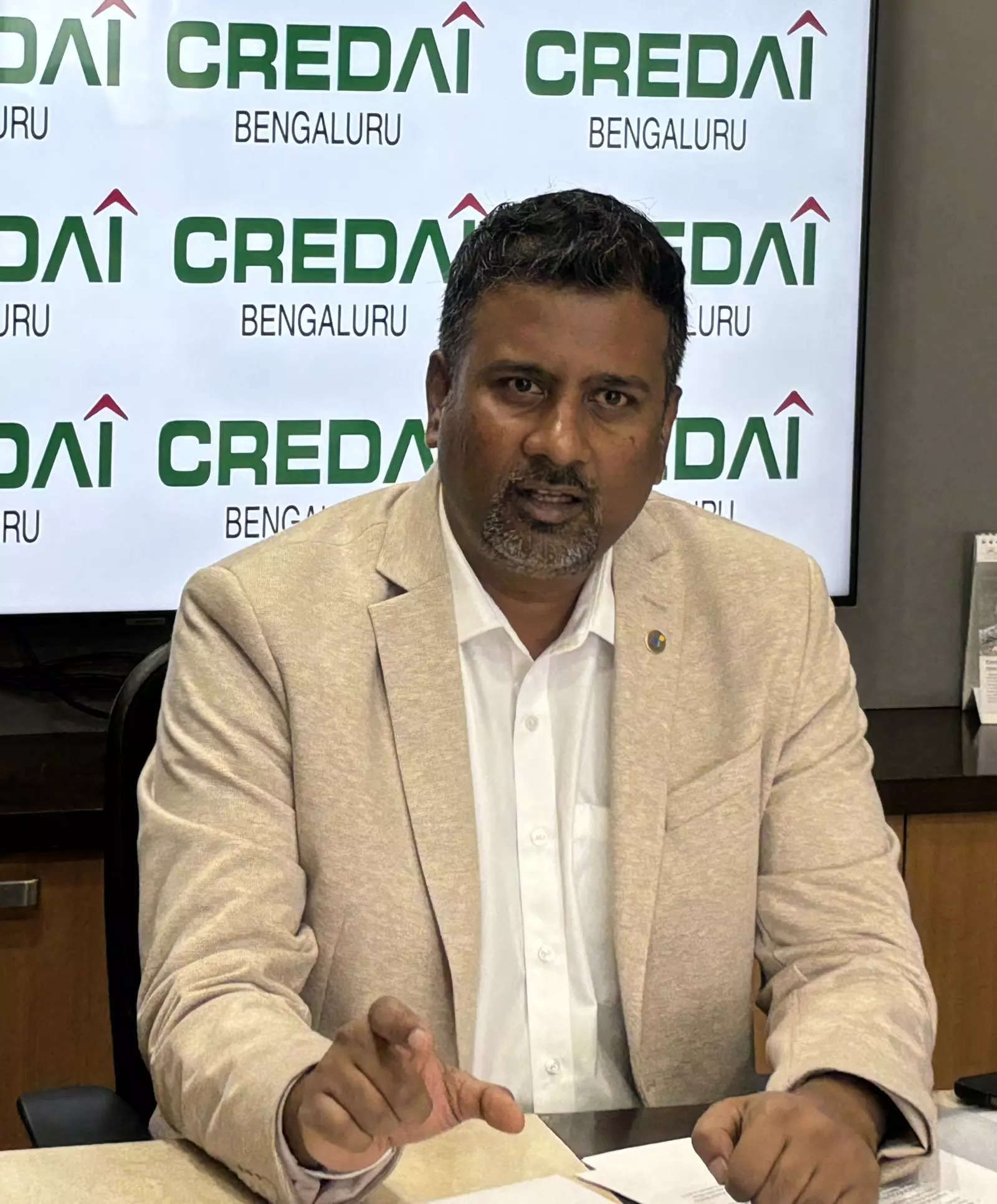
NEW DELHI: CREDAI Bengaluru has requested the government of Karnataka to urgently consider its recommendations on multiple issues it had placed before it over the last two years, outlining various concerns that developers in the city were facing.
“One pressing challenge that remains unresolved is the revalidation sought in respect of the old TDR certificates (Transferable Development Rights) which takes a lot of time to be included in the plan sanction process. CREDAI Bengaluru highlighted the significant impact of these issues on project timelines & costs and suggested that old TDR revalidation processes be streamlined. This would involve the elimination of redundant reviews and implementing guidelines for modified sanction plans that mandate TDR purchase before granting Occupancy Certificates. Such measures would ensure efficiency while enabling developers to focus on timely project completion,” said Amar Mysore, president CREDAI Bengaluru.
“I also urge the authorities to pay attention to the delays caused by the current multi-agency approval system for high-rise developments. We suggested the introduction of a single-window mechanism, as outlined under Section 32 of the RERA Act, to consolidate about 10-15 approvals that we otherwise will have to take individually from various departments. The platform would not only reduce administrative bottlenecks but also drive coordinated reviews, streamline digital documentation, and ensure fair, standardized fee structures for obtaining NOCs, said Mysore.
CREDAI Bengaluru also urged the government to reinstate benefits for vacant building taxes, alleviating the financial burden on property owners grappling with vacancies right after the building is completed or when the property is not leased out; this scheme was available to exercise in BBMP prior to Zone classification. Additionally, the issuance of no-due certificates for fully paid taxes should prevent retrospective reassessments, ensuring a fair and stable tax regime.
The organisation has also requested the government to take forward the TOD policy (Transit Oriented Development) that was formulated by The Directorate of Urban Land Transport (DULT) and Bangalore Metro Rail Corporation (BMRCL) back in May 2019. The TOD policy was introduced with the aim to boost transit-oriented development. However its implementation continues to remain a challenge.
“We had requested that the government consider increasing FAR allowances within 500 meters of metro stations and revising parking norms so as to encourage greater use of public transit, thereby reducing traffic congestion and enhancing overall productivity,” said Mysore.
CREDAI Bengaluru also asked for uniform definition for water bodies, including lakes, nalas, and streams, are essential to prevent arbitrary enforcement activities and ensure compliance. The organisation requested clarity in the classification of water bodies and revision of buffer zones to optimize land usage. Modernizing revenue maps in line with Comprehensive Development Plans through GIS and drone-based mapping would further streamline approval and enforcement processes, avoiding reliance on outdated data, it said.












